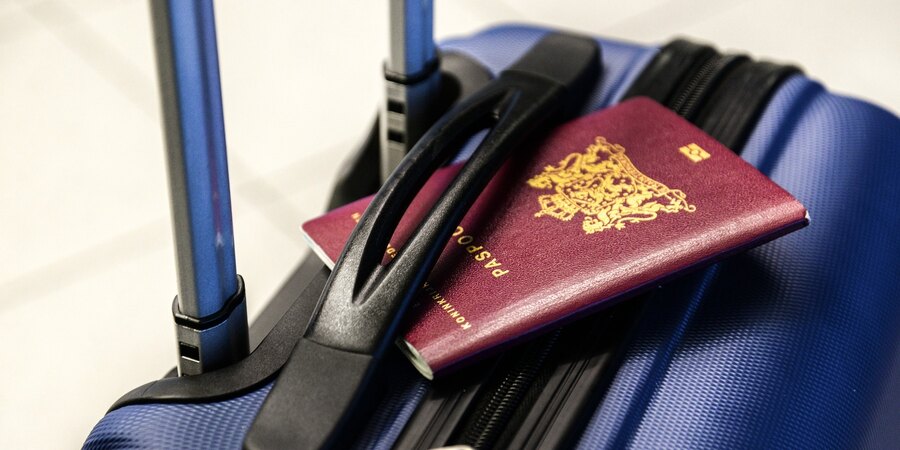The business traveler has come a long way through the centuries. It relates to the period when traders endured harsh weather and inhospitable terrains to cross rivers, oceans, and trade routes in search of business opportunities. Modern corporate travelers are internet savvy. They prefer using online business travel services such as self-booking solutions to execute business travel. Keep reading to know business traveler meaning and the key characteristics of seasoned business travelers
Technological advances in communication and transportation transformed business travel into a full-fledged industry comprising online travel agencies, travel management platforms, travel management companies, airline companies, hotels, and myriad travel vendors. Organizations strive to address business travelers’ needs and expectations to improve the productivity of business trips. .
Who are business travelers?
The simple definition of a business traveler is a person who travels for business purposes. The term business traveler reminds one of a traveling salesperson or trader moving from one place to another to meet prospective customers. However, business traveler meaning in a broader perspective covers diverse objectives such as attending corporate events, trade exhibitions, and conferences, meeting prospects for business expansion, exploring new investment opportunities, and strengthening customer relationships through networking. These types of business travelers cover faraway destinations, including domestic and international business locations, to achieve business objectives. Most business travelers are employees traveling on behalf of their organizations.
Characteristics of a good business traveler

Proactive, organized, punctual, and well-dressed are only a few attributes of a seasoned business traveler. However, there are several traits that make you a successful business traveler. Adopting these characteristics is crucial if you want to become one. Note the following characteristics of business travelers if you aspire to travel like a pro.
1. Travel light
Traveling is a pleasure if you are not carrying too many pieces of luggage. Heavy baggage can slow you down. Additionally, waiting at a baggage counter and security check can be a nightmare when you have a packed schedule of business meetings. Packing well and using a single carry-on suitcase make navigation a breeze. You can quickly exit the airport and reach the business location on time. Traveling light eliminates the physical and mental stress of any travel.
2. Have a clear purpose
Setting well-defined goals for each business trip is the foundation of successful business travel. Make the objectives achievable and measurable, as planning too many things will cause disarray if something goes wrong. Having clear goals for a business trip will help you focus on specific business activities. It will enhance the productivity of a business trip.
3. Adopt technology
Successful business travelers embrace the innovative technology of a travel management platform to streamline their business travel. SaaS-based travel management solutions such as Paxes ensure end-to-end automation of business travel. You can enjoy self-booking through a smartphone app, receive real-time travel alerts, and create and submit expense reports on the go, besides assurance of round-the-clock emergency support.
4. Strike a good work-life balance
A business tour need not be a stressful experience of chasing time, missing meals, and disturbed sleep. Devote time to stay connected with your near ones back home. Choose a hotel that provides good amenities and comforts for relaxing after a busy day. Follow your exercise schedule, explore the surroundings, and plan your work well.
Needs of business travelers
Business travel can be a tiring process. Hence, there should be clear needs and requirements of travelers to make the most out of trips. Here are some of the requirements of business travelers:
- Time management for a work life balance
- Being connected with the headquarter and managers during the travel
- Comfortable and convenient trips
- Flexibility of altering the schedule
- Safer traveling conditions
How can you improve the business traveler’s experience
Though business trips are unavoidable for the expansion of the business, there are many ways in which one can improve the experience of the employees traveling places for the same. Here are some of the efficient ways to enhance the overall experience of the travelers:
- Pre-trip planning
- Streamlined check-ins
- Customizable schedules
- Flexibility in travel policies
- Travel support
- Booking high-end amenities
Conclusion

No matter what type of business trip you plan, adopting these attributes of successful business travelers will surely help you get the most out of each business trip. Business travel meaning is rapidly shifting with the rise of the techno-savvy and adventure-loving millennial generation. Business travel is embracing technology to automate travel booking and expense process.
Suggested Read: Corporate Lodging Solutions: Perks On Hotel Bookings
Business Traveler Meaning FAQs
What is the most common purpose of business travel?
Business development is the commonest aim of business travel.
Does a company reimburse all expenses on a business trip?
Companies reimburse all travel expenses of an employee except for personal expenses.
How does business travel benefit the employee?
Employees can visit different places, develop new business relations, and broaden their outlook by exploring the world away from the office
Why is business travel different from leisure travel?
Unlike leisure travel, business travel is non-seasonal. It has low price sensitivity and better service quality.
Which are the two challenges of business travel?
Managing the safety and well-being of business travelers and ensuring a high ROI are two challenges of business travel.
How do you identify a business traveler?
To identify the business travelers needs, one must keep factors such as business expectations, comfort needs, safety requirements, and costing in mind.
What are examples of business traveler?
Business travelers include sales representatives, executives, consultants, journalists, researchers, government officials, and more.
What do business travelers want from airlines?
Business travelers look for comfortable seats, in flight amenities, less to no delays, security, flexibility, and more such things.
How can I find the best deals on flights and accommodations for business travel?
The companies can integrate with travel management companies to find competitive prices in one place. They can also look at the booking platforms to find the best deals for flights and accommodations.
How can I stay productive and organized while traveling for business?
There are various travel management software and apps that can assist business travelers during their business trips. They can see and manage their entire travel itinerary in one place and make all the transactions directly through the software. It helps them to focus on their business objective and keep themselves organized.
What are the key factors to consider when choosing a hotel for a business trip?
Consider the location and its accessibility to various local locations, look at the reviews online from past visitors, look for various amenities, and make sure that they incline with your needs, and check with the hotel for its policies.
How can I maintain a healthy work-life balance while traveling extensively for business?
It must be clearly mentioned in the Duty of Policy that the work-life balance must be properly maintained. The employee should allot their time of the day for work and family separately. They must not work overtime and stress themselves.
How do I handle travel disruptions, such as flight cancellations or delays, and ensure minimal impact on my business plans?
If you have an integration with a TMC, they will guide you through the disruptions in travel. However, all airlines provide alternative flights in case of cancellations. You can always get travel insurance while booking your flights to ensure minimal to no impact on business trips.
A business traveler distinguishes themselves from a regular tourist by the purpose of their trip and their activities. Business travelers venture primarily for work-related reasons, such as meetings, conferences, or negotiations, while tourists seek leisure, exploration, and relaxation. Business travelers follow packed schedules, often staying in convenient hotels chosen for proximity to work, with expenses frequently covered by employers. In contrast, tourists select accommodations based on personal preference and budget, enjoying recreational and cultural activities. Business trips are typically short and focused on professional objectives, whereas tourists have flexibility for extended stays.
What are the common reasons for someone to be considered a business traveler?
Common reasons for being considered a business traveler encompass professional pursuits. These include attending meetings and negotiations, participating in industry-specific events like conferences and seminars, engaging in training or workshops, conducting market research, providing expert advice or consulting services, and overseeing company operations in different regions. Business travelers contribute significantly to their organizations by advancing business goals through these work-related journeys.
Are there any benefits or challenges associated with being a business traveler?
Being a business traveler has its benefits and challenges. Positively, it offers opportunities for professional growth, skill development, and networking with industry peers. Exposure to diverse cultures fosters cultural understanding. However, challenges include stress and fatigue due to frequent travel, disruptions to routines, and work-life balance. Logistical issues like travel disruptions and language barriers can pose hurdles. Balancing these aspects necessitates effective planning and a keen awareness of personal and professional needs.
What features should I look for in a travel expense tracking app?
When choosing a travel expense tracking app, prioritize features such as receipt scanning, expense categorization, currency conversion, and real-time synchronization. These capabilities streamline the process of managing expenses during your business trips, ensuring efficiency and accuracy. Look for apps compatible with both iOS and Android platforms to cater to your device preferences.
What features should I look for in a travel expense tracking app?
Consider popular expense tracking apps like Expensify, Concur, Zoho Expense, Xpenditure, and TripIt, all available on both iOS and Android. These apps offer various levels of automation and customization, making them suitable for a range of business travel needs. They simplify expense organization, currency conversion, and reporting, enhancing your ability to manage expenses effectively.
How can these apps help me manage my expenses efficiently during a business trip?
Expense tracking apps can significantly improve efficiency during business trips by digitizing receipts, automating data entry, handling currency conversions, and providing real-time updates. They help ensure compliance with company policies and enable easy generation of customizable expense reports. By reducing administrative burdens, these apps allow you to focus more on your work, ultimately making your business trips more productive and stress-free.



